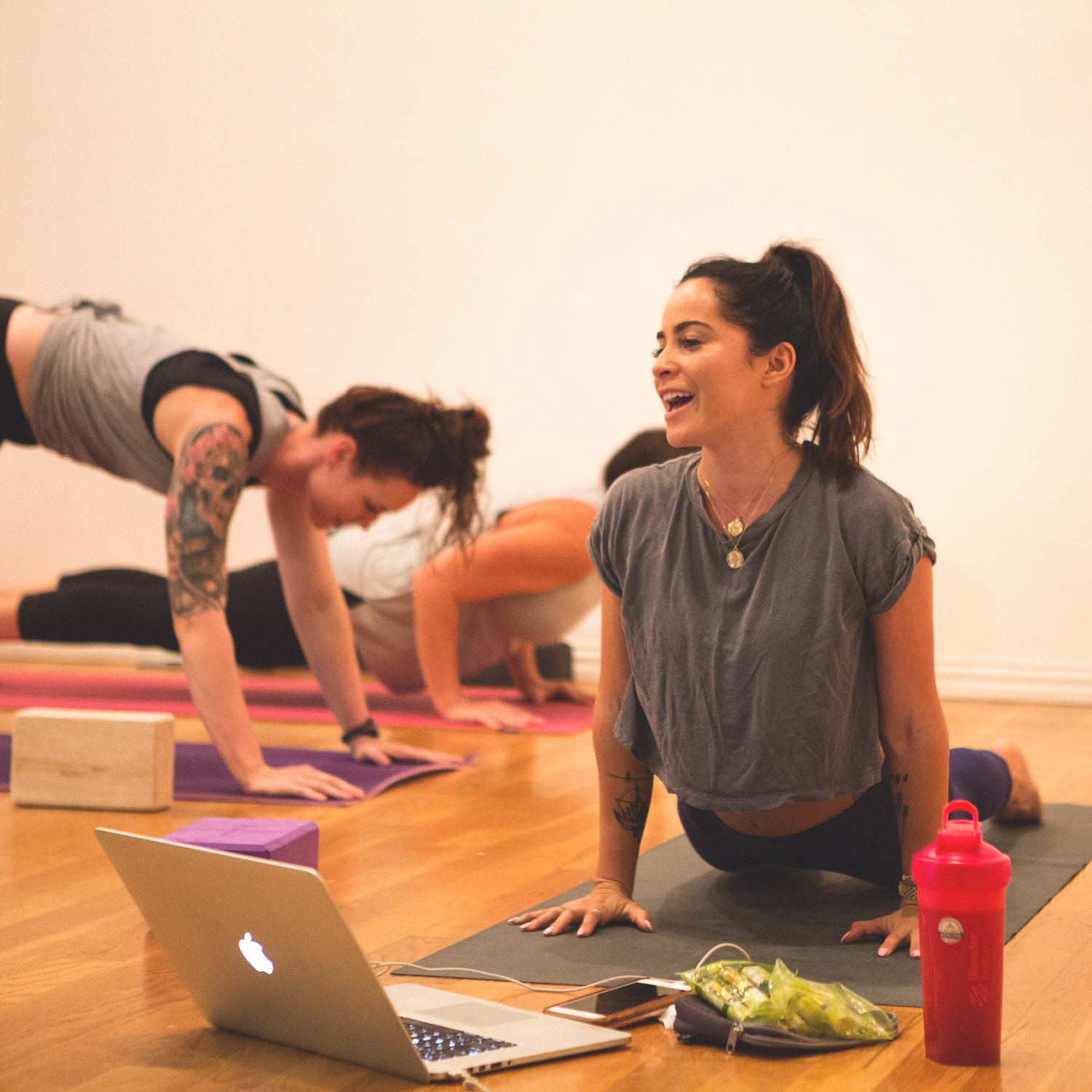In my sophomore year in college, I lost three family member right in a row. I wrote about it in greater detail in Namaslay®, but essentially it triggered terrible anxiety and deep depression. Eventually, I was diagnosed with PTSD from the trauma of it all. I had debilitating panic attacks, and then I would get anxiety about the potential anxiety attacks - it was a vicious, ugly cycle. I tried yoga, I tried meditation, I tried everything, but I just wanted to jump out of my own skin at all times. With the help of multiple health professionals, I was finally able to pull myself out of the depths of it all. While most people might feel sorry for me for having to go through that experience, I’m actually grateful for it. Before that, I didn’t understand just how deep depression could go. I didn’t understand what it felt like to be fearful of everything. I didn’t understand being unable to be in the moment. Once I started talking about it with close friends and family, the more I realized that many of the people around me struggled with anxiety, depression, PTSD or all three in one way or another. It made me realize how prevalent it is in our society, and how little it’s talked about.
In designing our curriculum for Namaslay® Yoga Teacher Training program, I wanted to be sure we included a bit about this to help make yoga for inclusive. We invited Jen Mehall to teach our Yoga for Post Traumatic Stress Disorder (PTSD) course which is both really interesting and eye-opening. Jen is certified in teaching yoga for PTSD students and points out that while we mostly think of military veterans when thinking of PTSD, it can actually affect a wide variety of people - those that have suffered child abuse, sexual violence, or anyone who has experienced trauma. Jen also points out that while there are classes for PTSD-only students, you may have students in your regular yoga classes that are actually experiencing PTSD so it’s important to be aware of a few teaching tips to help make them feel welcome, comfortable, and at ease in their practice.
Of course there are certifications you can get if you're interested in teaching PTSD, but it's also really nice to have a general understanding of how to teach someone affected with PTSD. Here are five things I learned from Jen in regards to teaching yoga for PTSD:
1. Be Predictable - You generally don't know what has caused your client(s) to have PTSD, so being as predictable as possible generally gives people ease. For example, keep your mat in the same place for every class or use the same playlist for every class.
2. Use Inviting Language - You’ll generally want to avoid phrases that may come across as commands like: Come to the front of the mat. Instead, say something like, "I invite you to start at the front of your mat." These phrases may not seem like a big deal, but they really make a difference to someone who is suffering from PTSD.
3. Stay on Your Mat - This pretty much goes against everything we say in a teacher training, where we want people to walk around the room, but for clients with PTSD, things are different. To avoid causing stress or triggering fear, consider either sticking to your mat, or staying in open parts of the room rather than walking directly up to your student with PTSD.
4. Savasana May Be Out - If you are teaching a full PTSD-student class, then yes, Savasana is out. (You’ll also want to be sure you’ve received your certification to teach a class geared towards those with PTSD.) Savasana may trigger people with PTSD, so instead of bringing them into Savasana, you can end in a comfortable seated position, likely with the eyes open. If you are instructing a class with both PTSD and non-PTSD students, then just offer options such as seated, standing, lying down, eyes open/closed.
5. Nix the Sanskrit - Sanskrit can be triggering for people with PTSD due to the fact that they may not know what the words mean, and that can cause serious anxiety. Instead of calling out virabhadranasa, just say Warrior 1.
If you have additional experience or expertise in teaching yoga to PTSD students or have experiences you’d like to share, please comment below and let us know!

